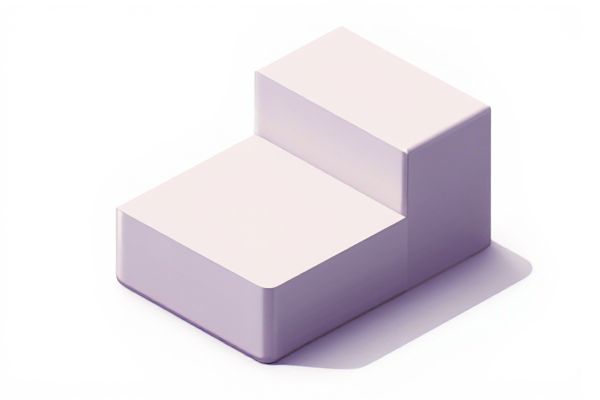
Explore endless creativity with our online Random Shape Generator 2D, designed to produce unique shapes for your projects or artistic inspiration. Customize parameters effortlessly to generate diverse geometric figures ideal for design, education, or entertainment. Experience instant, high-quality shape generation that fuels innovation and enhances visual creativity.
Online tool for random shape generator 2d
We have prepared several samples for a 2D random shape generator that are ready to use and randomize. You can also enter your own list for customization. With just one click, the generator provides a randomized list along with a single value for immediate use.Data Source
Single Result
Multiple Results
Introduction to 2D Random Shape Generators
2D random shape generators use algorithmic processes to create unique geometric figures with varying sizes, angles, and contours, enhancing procedural content creation in digital design and gaming. These generators typically employ mathematical models such as Perlin noise, fractals, or Voronoi diagrams to ensure shapes are both diverse and visually coherent. Implementing 2D random shape generation accelerates creative workflows by providing an endless supply of customizable shapes for sprites, backgrounds, and other graphic assets.
Key Features of Effective 2D Shape Generators
Effective 2D random shape generators provide high versatility by supporting a wide range of polygon types, including convex, concave, and irregular shapes. They incorporate parameters for controlling shape complexity, vertex count, and randomness degree, ensuring customizable and diverse outputs. Integration with graphic software and export options in formats like SVG or PNG enhance usability for design and prototyping applications.
Benefits of Using Random Shape Generators in Design
Random shape generators in 2D design enhance creativity by producing unique and unpredictable geometric forms that inspire innovative layouts. Utilizing these tools improves workflow efficiency by automating shape creation, saving time on manual drawing tasks. They enable designers to explore diverse visual possibilities, leading to more dynamic and engaging graphic compositions.
Algorithms behind 2D Shape Generation
The algorithms behind 2D shape generation primarily utilize procedural techniques such as Perlin noise, Voronoi diagrams, and L-systems to create diverse and complex shapes. Computational geometry methods, including convex hull algorithms and polygon triangulation, optimize shape boundaries and ensure structural coherence. Machine learning models like generative adversarial networks (GANs) are increasingly used to produce realistic and varied 2D shapes by learning from extensive datasets.
Popular Applications for 2D Random Shape Generators
2D random shape generators are widely used in game development for creating unique and dynamic game assets such as terrain, obstacles, and characters. They also play a critical role in procedural art and design, enabling artists to generate complex geometric patterns without manual input. In scientific visualization, these tools help simulate natural phenomena and model irregular structures for research and educational purposes.
User Interface and Customization Options
The 2D random shape generator features an intuitive user interface designed to streamline shape creation with easy-to-navigate menus and real-time preview panels. Customization options include adjustable parameters such as vertex count, shape complexity, color palettes, and rotation angles, enabling users to tailor shapes precisely to their project needs. Advanced controls support exporting shapes in multiple formats like SVG or PNG for seamless integration into graphic design workflows.
Integration with Graphic Design Tools
Random shape generator 2D tools enhance graphic design workflows by seamlessly integrating with popular software like Adobe Illustrator and Sketch, allowing designers to quickly create unique vector shapes within their projects. These generators support export formats such as SVG and PNG, ensuring compatibility and easy manipulation in design environments. API integration enables automation and customization, streamlining the process of generating diverse shapes for branding, UI elements, and creative compositions.
Challenges in Generating Meaningful Random Shapes
Generating meaningful random shapes in 2D involves complexities such as ensuring shape diversity while maintaining natural-looking forms that avoid self-intersections or unrealistic geometries. Algorithms must balance randomness with constraints to produce shapes that are not only visually distinct but also mathematically valid, which requires advanced techniques like procedural generation or machine learning. Handling edge cases, ensuring scalability, and optimizing computational resources remain significant challenges in developing efficient random shape generators.
Future Trends in Shape Generation Technology
Future trends in 2D random shape generation technology emphasize enhanced procedural algorithms leveraging deep learning to create more complex and diverse shapes with higher realism. Integration of AI-driven optimization enables adaptive shape generation tailored for specific applications such as gaming, design, and data visualization. Advancements in GPU acceleration and real-time rendering further improve computational efficiency, allowing dynamic and interactive shape generation in virtual environments.
Recommended Online 2D Random Shape Generators
Recommended online 2D random shape generators like "ShapeGenerator" and "GeoPattern" offer versatile tools for designers and developers to create unique geometric patterns and abstract forms effortlessly. These platforms provide customizable parameters such as the number of sides, size, color, and symmetry options to tailor the generated shapes to specific project needs. Users benefit from instant previews, downloadable SVG or PNG formats, and integration features for seamless use in web design, digital art, and creative coding projects.
 azrandom.com
azrandom.com